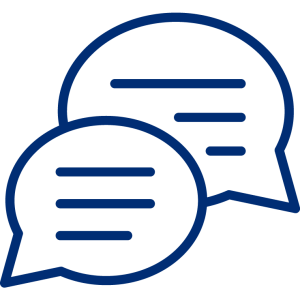The Early Learning program is dedicated to collaborating with early learning communities to create classrooms of educational excellence dedicated to the full development of children in at-risk communities.
In such learning environments, teachers would demonstrate best practices to:
- Enhance school readiness
- Foster student achievement
Develop home-school-community partnerships, thus closing the gap in educational disparity.
Why Is Early Learning Important?
Simply put, a child’s early years lay the foundation for all that is to come. In recent years, researchers have learned that the human brain develops the vast majority of its neurons, and is at its most receptive to learning, between birth and three years of age. In fact, the intake of new information is critical to the formation of active neural pathways (Shonkoff & Phillips, 2000).
Early education can play a critical role during this important developmental period. Research linking early intervention to both cognitive and socio-emotional gains has fueled the proliferation of early childhood programs since the early part of the twentieth century. The last four decades in particular have produced many new practices and principles for use in the classroom with young children, as well as countless books, videos, and activities to enrich the home environment. Several states have announced plans to implement universal preschool programs. In the last five years, the Federal government has produced several critically important books on early childhood education (Bowman, Donovan, & Burns, 2001; Shonkoff & Phillips, 2000; Snow, Burns, & Griffin, 1998) and has provided record contributions for the development and dissemination of effective practices.
Meet the Early Learning Staff
Barbara A. Wasik, PhD
Barbara A. Wasik is a Principal Research Scientist at the Johns Hopkins University Center for Social Organization of Schools and the Director of the Early Learning Program. Her primary research interests lie in emergent literacy and early reading-readiness intervention, with a specific focus on disadvantaged children. She has extensive experience in curriculum development and was the original developer of the tutoring and early childhood program in Success for All, a school-wide restructuring program. Dr. Wasik has written extensively about tutoring as an early intervention strategy for children at risk of reading failure. She is currently developing a language and literacy training program for early childhood educators. Dr. Wasik has co-edited the book Early Prevention of School Failure and has co-authored the recently released book Kindergarten: Four-and Five-Year-Olds Go to School with Carol Seefeldt. She received her Ph.D. in developmental psychology.
Mary Alice Bond, MEd
Mary Alice Bond is a Senior Instructional Facilitator and the Director of Training with the Early Learning Program at the Center for Social Organization of Schools. She has more than 20 years experience teaching and developing curriculum for young children and their teachers. She began her career in early childhood education as a preschool teacher in the Baltimore City Public School system. Over the years she has been developing and training language and literacy preschool programs that have been used throughout the country, most recently in Baltimore City and Philadelphia. Mary Alice earned her master’s and bachelor’s degrees in early childhood education from Towson University. She is currently pursuing a graduate certificate in supervision and administration from the Johns Hopkins University School of Education.
Questions about Early Learning?
